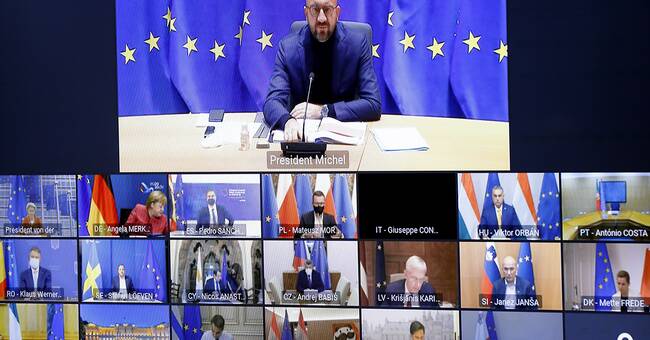The struggle has been raging for several years between Hungary and Poland on the one hand and other member states on the other.
On Monday, everything came to a head when the two countries openly chose to block an agreement on the next long-term budget and corona support.
What they want to stop is the introduction of a new system to ensure that all EU countries comply with fundamental principles of the rule of law and democracy.
In particular, the Hungarian Prime Minister Viktor Orbán seems convinced that it is all about immigration and migration.
"Once this proposal is passed, there will be no obstacles to linking Member States' share of common funds in support of migration and using financial means to blackmail countries that oppose migration," Orbáni said in a statement.
"We do not back down"
He is supported by Janez Jansa, Prime Minister of Slovenia, who will take over the presidency of the EU Council of Ministers on 1 July next year.
In a letter to other EU countries ahead of Thursday's web summit, Jansa warned that the EU is now "sailing on stormy seas" and that new withdrawals could be the case if no agreement can be reached.
However, Prime Minister Stefan Löfven states that there is an "enormously strong" majority for the preliminary agreement that the EU Council of Ministers has reached with the European Parliament on the EU budget.
He judged in the Riksdag's EU committee on Thursday that the majority is 25 against 2, or maybe 24 against 3.
Löfven also stated that on Wednesday he participated in a digital meeting with his colleagues from Germany, Italy, Spain and Portugal.
- We do not back down.
We stand for this agreement, he said.
Breakthroughs are delayed
How the blockage will be resolved is difficult to predict.
No page seems ready to go back so far.
Thursday's summit was not expected to offer a breakthrough - and in the end only spent about a quarter of an hour on the battle.
Hungary and Poland are being pressured hard, especially by the countries of southern Europe that are waiting for the multi-billion contributions promised after the corona pandemic.
At the same time, behind the scenes, ways are being prepared to go around the veto countries by, for example, making corona support a collaboration only for the other 25 - or 24.

